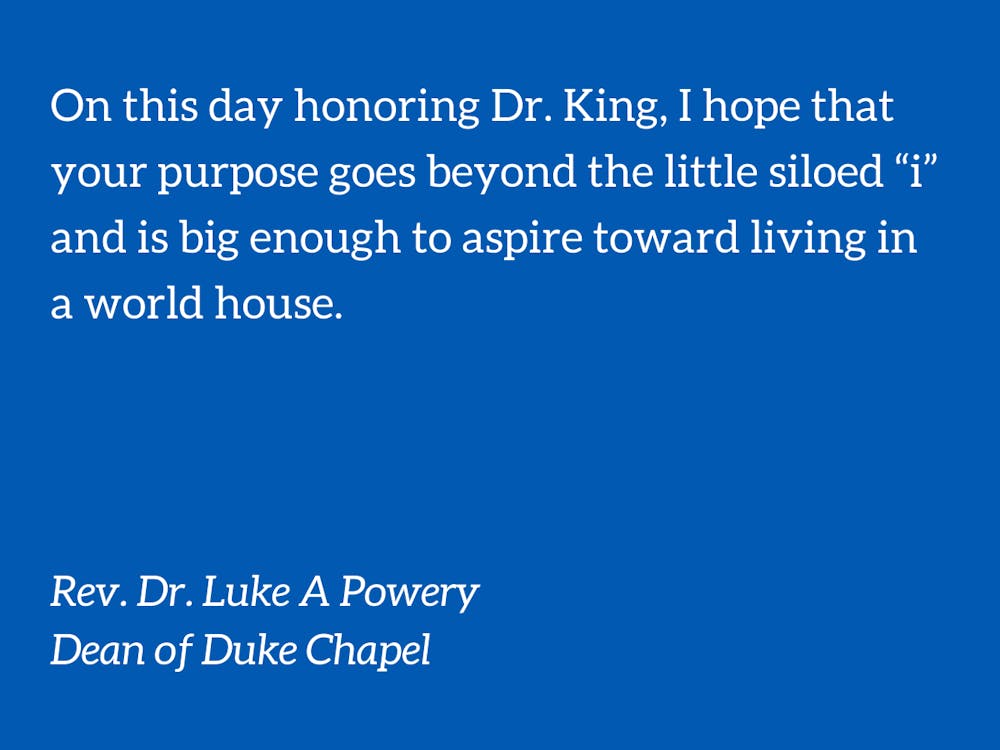In his Nobel Prize Lecture on December 11, 1964, the Rev. Dr. Martin Luther King, Jr., spoke the following words:
“Modern man has brought this whole world to an awe-inspiring threshold of the future. He has reached new and astonishing peaks of scientific success…. Yet, in spite of these spectacular strides in science and technology, and still unlimited ones to come, something basic is missing. There is a sort of poverty of the spirit which stands in glaring contrast to our scientific and technological abundance.”
These words spoken over 57 years ago still bite with truth in 2022. We can go to space and pay millions of dollars to do so, and still not make space for each other on earth. King was a seer and much of what he experienced is still experienced in our time--maybe not on the same scale but the same destructive spirit still lingers. Technology has outpaced our morality and spirituality. We’ve become richer materially but poorer morally and spiritually and have forgotten in many ways the “simple art of living together.”
Consider the iBook, iMac, iPod, iPhone, iPad. When Steve Jobs first introduced the iMac in 1998, he said that the “i” stood for internet, individual, instruct, inform, inspire. This “i” has since become ubiquitous in our technologically saturated culture but notice that it is a lowercased “i”—a little self. Perhaps we have been reduced to a smaller size and our communal imagination has shrunk. With all of our techy devices, we now, to use the words of Sherry Turkle, “expect more from technology and less from each other.” Our devices may save time, but they don’t save our collective souls.
In contrast to this focus on a small self, Dr. King pressed and prayed for a genuine human community. He realized that if any real progress was going to be made on this planet, there would have to be a collective recognition of our common humanity and heart. This was his dream, even what might be called his ultimate dream, as we hear about it in the final chapter of what became his final book, "Where Do We Go From Here? Chaos or Community?" That final chapter is simply called “The World House.”
In his foreword to Hak Joon Lee’s "The Great World House," historian Lewis Baldwin explains that the “world house” refers to “a totally integrated world, undeterred by human differences and committed to the ethical norms of love, justice, community and peace. In more simplistic terms, "world house" for King amounted to a global communitarian ethic that embraces persons across geographical and cultural boundaries.” Indeed, it was a term King used to mean “beloved community” or “human family” or “new world order.”
Key for King was the recognition that all people are created in the image of God and are interdependent. As he put it in his final chapter on the world house, “We are inevitably our brother’s keeper because we are our brother’s brother. Whatever affects one directly affects all indirectly.” More explicitly, this large house, this world house, was one in which “black and white, Easterner and Westerner, Gentile and Jew, Catholic and Protestant, Muslim and Hindu” live together, not just tolerate one another.
The purpose of King’s life--his “why” for living--was to call for an ecumenical worldwide fellowship of love. He was a cosmopolitan person who understood that all human lives are interconnected and that we belong together across our differences, despite what we see every day in our society. He was a dreamer, and his dream of racial, social, and economic harmony has not yet come true.
King was willing to die for his “why.” What is your “why”? What is your purpose?
Even when King became the youngest person at the time to receive the Nobel Peace Prize in 1964, his father, Daddy King remarked, “Martin, did not belong to us, he belonged to all the world.” It is not surprising then that his ultimate dream of dreams, the telos of his life’s work was “the world house.” His dream was big. His “house” was big. How big is yours?
On this day honoring Dr. King, I hope that your purpose goes beyond the little siloed “i” and is big enough to aspire toward living in a world house.
The Rev. Dr. Luke A. Powery is Dean of Duke Chapel.
Get The Chronicle straight to your inbox
Sign up for our weekly newsletter. Cancel at any time.

